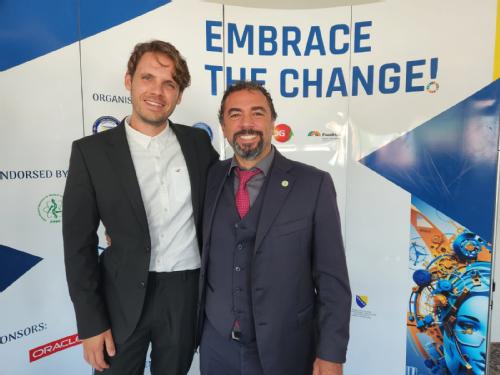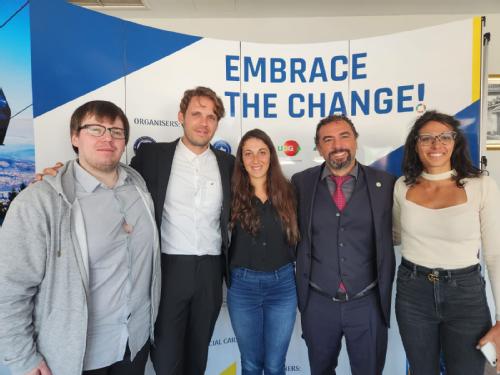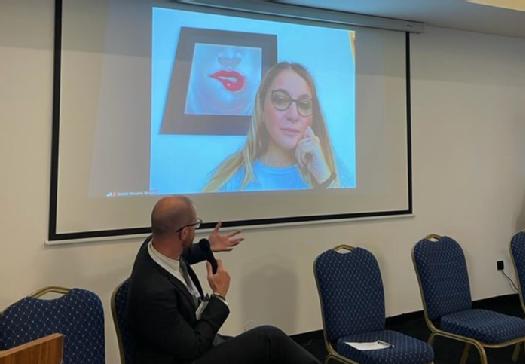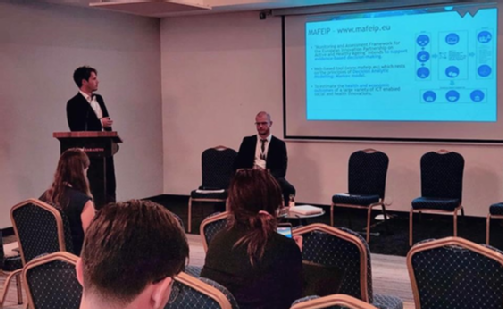News: ABSPIE recent initiatives
ABSPIE's contributions at the 16th Mediterranean Conference on Medical and Biological Engineering and Computing (MEDICON)
The 16th Mediterranean Conference on Medical and Biological Engineering and Computing (MEDICON) and the 5th International Conference on Medical and Biological Engineering (CMBEBIH) were held from September, 14 until 16, 2023, in Sarajevo, Bosnia and Herzegovina. The conference was supported and endorsed by IFMBELink opens in a new window (Prof Leandro Pecchia is Secretary General) and EAMBES (Prof Leandro Pecchia is Past President) and the ABSPIE lab represented the School of Engineering of the University of Warwick in this international gathering and had a great participation. The event, which was attended by delegates from all over the world, focused on the importance of biomedical engineering and healthcare technology in addressing various healthcare and global challenges and aimed also to enable participants to establish valuable business contacts, exchange ideas and experiences, and develop collaborations in the field of digitalization.
The contributions of the ABSPIE Lab were numerous.
Prof. Leandro Pecchia coordinated EAMBES and IFMBE meetings discussing how to improve international cooperation, also with LMICs, and support policymakers such as WHO and UN.
Dr Davide Piaggio was chair of two special sessions, i.e., one on frugal engineering (Co-chair Owain Cisuelo) and one on AI for HTA and HTM in healthcare (Co-chair Alessio Luschi), and one general session on artificial intelligence and machine learning for healthcare. Davide, funded by the HealthGRP, made three presentations, relative to the sustainability of the medical device industry, the frugal design of medical devices for low-resource settings, and the application of early HTA to AI (Gatekeeper case study).
Owain Cisuelo presented his work on a novel method for non-invasive glycemic event detection using wearable sensors and artificial intelligence. He received the second prize in the IFMBE young investigator competition which came with a €200 award.
Martina Andellini presented a Health Technology Assessment study: The cost-effectiveness evaluation of Continuous Glucose Monitoring For Paediatric Patients With Type 1 Diabetes Compared With Self-Monitoring Of Blood Glucose.
Martina Sassi from UCBM and Salman Haleem from ABSPIE lab presented "Spectrogram-based approach with Convolutional Neural Networks for human activity classification", which was awarded the IFMBE Scientific Challenge Award.
Dr Alessia Maccaro presented a work on “Ethics for Biomedical Engineering: the way forward for proper emergency preparedness and governance” during the Frugal Engineering special session and work on “Ethical dilemmas of Artificial Intelligence and Generative Pre-Trained Transformers technologies in supporting decision-making in healthcare” during the special session Artificial Intelligence applied to Health Technology Assessment and Health Technology Management for empowering healthcare.
Wanzi Su was chair of the session on Health Informatics, eHealth, and Telemedicine. Within this session, Wanzi, funded by the China Scholarship Council, made a presentation about the preliminary result and validation performance of the smartphone-based eye-tracking algorithm on ophthalmological and neurological research.








